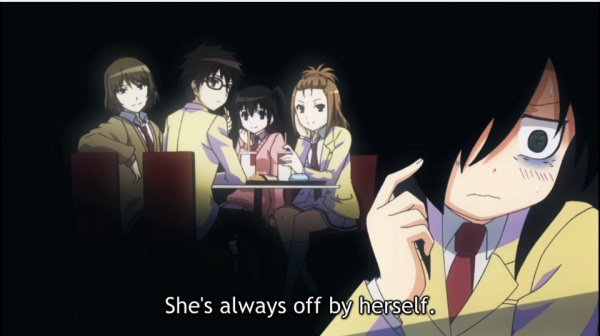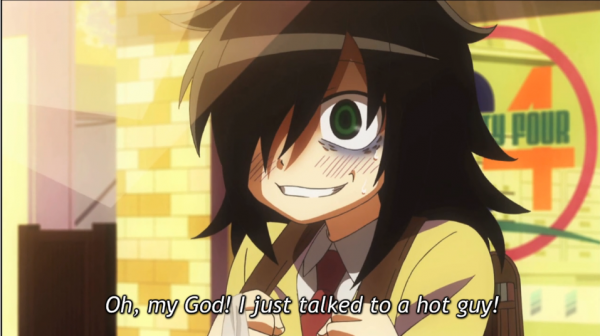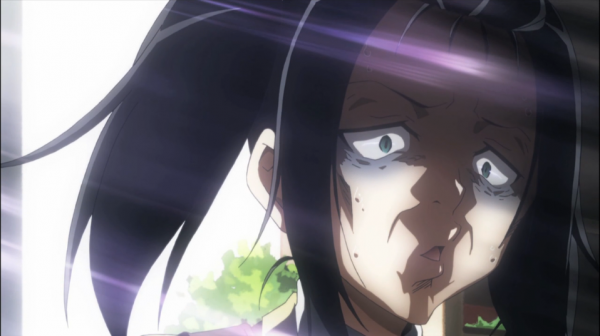I’m not exactly sure when I realized that I had more friends than I thought. It might have been sometime during my mid 20s, when I was sitting in a Corner Bakery with other church people. I was in one of my more morose moods and had a hard time looking people in the eye, a bad habit that has plagued me since my early days. Though I was surrounded by people, Christians, who were supposed to be friendly, I ate my sandwich in a cone of silence. Which is the way I liked it much of the time, except when I didn’t and I wished someone, preferably an attractive person of the opposite sex, would talk to me first.
Finally, someone asked me how I was doing. “It could be better,” I think I said. “It’s kind of lonely.” You are not supposed to answer that question that way, of course. You are supposed to say “Good,” or “I’m fine” because otherwise the conversation comes to a screeching halt. People look at you with concern, and it starts getting Serious and voices have that hush of exaggerated Worry For Your Well Being.
It took half a moment before I recognized my faux pas and I tried to laugh it off, and apologized for being so awkward. “But I’m better than I used to be,” I added hastily. “You should have seen me when I was in my teens. Ha ha ha.” And it was true–coming to California had already begun to relieve me of the near catatonic states I sometimes got in in large group settings–but they didn’t need to know that. Man, how pathetic, I thought. You already sound so self-justifying, so self-pitying. ”I’m not used to having a lot of friends,” I concluded. And there’s the troll for sympathy.
I don’t remember what the person said in response. It wasn’t anything as encouraging or straightforward as “We’re all friends here,” or “But we like you.” Maybe it was “it’s ok. You’re fine.” But not long afterwards, I thought about all the friends I still had back in Maryland, living overseas in places like Japan or Taiwan. The not unfriendly, not unkind people that surrounded me. They were laughing but they weren’t laughing at me, which is how I used to interpret all laughter that I heard outside my immediate presence. They didn’t not want me here. I realized: Maybe I wasn’t popular, but I wasn’t friendless either. At some point, the old narrative I had told myself since childhood was no longer true.
It took me a long time, a lifetime really, to get to that point.
* * *
The most relatable aspect of Tomoko Kuroki, the heroine of WataMote (the short form of a story titled No Matter How I Look At It, It’s Not My Fault I’m Not Popular!) is her self-talk. In the first episode of the anime, we are treated to her running internal dialogue, which alternates between grandiosity, judgmental contempt for her peers, self-justification, self-doubt, and even suicidal intentions: and that’s just in the first half. If it had to be boiled down to a single word, it might be “insecurity,” and that is certainly a huge aspect of it, but what WataMote gets that other fine shows such as Kimi ni Todoke don’t get is also the other side of the pendulum swing: the absurd, delusional self-confidence that happens just before a crash. “I’m not unpopular!” she proclaims. “I talked to 6 guys last year!” As someone who used to call it a good day when a pretty girl sat next to me in church or on the bus, even if we didn’t talk, and used to keep informal tallies of conversations I had…that hurt.
Tomoko is also not very likable, and this is also a truth of being an outcast. Someone like the pure-hearted Sawako from Kimi ni Todoke may be low self-esteem, but her sweetness and innocence are deeply appealing. Tomoko is neither so innocent or so pure, and I’m not talking so much in the way she gets turned on by otome games. Outcasts can be the biggest snobs and most judgmental of others, as in her dismissal of her more popular peers as “sluts” or “bitches” and the boys who like them as “idiots.” I certainly remember inveighing against popular movies like Titanic when it was released, taking pride in not listening to mainstream garbage on the radio, and refusing to use less big words in my speech for fear of accommodating to the dumb masses. “You are so hard to please,” a girl told me once. The truth was, I was insufferable sometimes. And so is Tomoko. I can imagine those who can’t relate to her disliking her in this anime, the way a lot of folks despise Shinji from Evangelion. It’s brave for WataMote to depict this aspect of unpopularity, from the self-pitying title on down.
The temptation for a story like this, especially with the grotesque efforts Tomoko makes in trying to make herself “cute,” is to turn this into a standard makeover story, in which a little fashion advice turns a homely girl into a beautiful one and suddenly she gets all the guys she wants. I’m assured by others who read the manga this is not the case. The irony is that this is the story that Tomoko and those like her indulge in all day: witness her love of otome games and how she has “dated” over 200 guys and been a high school girl for 50 years. The makeover narrative is one Tomoko desperately wants to believe in: if I had high test scores, or if I only dressed differently or wore glasses or followed advice in magazines, I’d be liked….Because that’s relatively easy. The truth is that popularity is a full-time job when you are in high school and people with other interests and priorities–like most of us nerds and geeks–simply don’t, and shouldn’t, do that work if we want to remain true to ourselves.
And her brother, Tomoki. I had no siblings, who might have provided at least an outlet of sorts, and I sometimes longed to have an older sister, probably because most of the girls who were kind to me tended to be older. But given the stilted way I talked to my parents at that age, I’m not sure I would have done much better than Tomoko with her brother. He, after all, is “normal” and even popular, being an accomplished athlete; I had grades and I had writing, which is something, but not things that discouraged my reclusiveness. There’s evidence that Tomoki is more than a little concerned about her, but given her mood swings and insecurity his annoyance is also understandable. I know my parents didn’t understand why failing a quiz felt so devastating to me at the time. There were few other things holding me up, and the moodiness that comes to most adolescents can seem like a distant memory once you’re an adult.
I watch this show now, with its spastic, Shin Oonuma directed visuals, its depictions of a genuinely plain and sometimes ugly female lead (itself a daring move for anime), and its emotionally accurate depiction of social isolation’s effects, and I have two simultaneous reactions: laughter, and knowing pain. Laughter, because I am old enough and past my adolescence and early 20s to realize how silly my thought process was sometimes. Pain, because I am young enough to remember how debilitating that time was: forgetting how to greet people pleasantly because you’d been isolated for so long. Not knowing how to sustain a conversation with anyone you find attractive. Fidgeting, stammering, talking to oneself a bit too much. Assuming that being liked or loved is only attainable in a fantasy game.
A lot of us started from there and have struggled, or still struggle, to get out. WataMote, hopefully, honors the rest of us non-popular people with emotional truth, laughter, and tears. Ganbatte ne, Tomoko.



